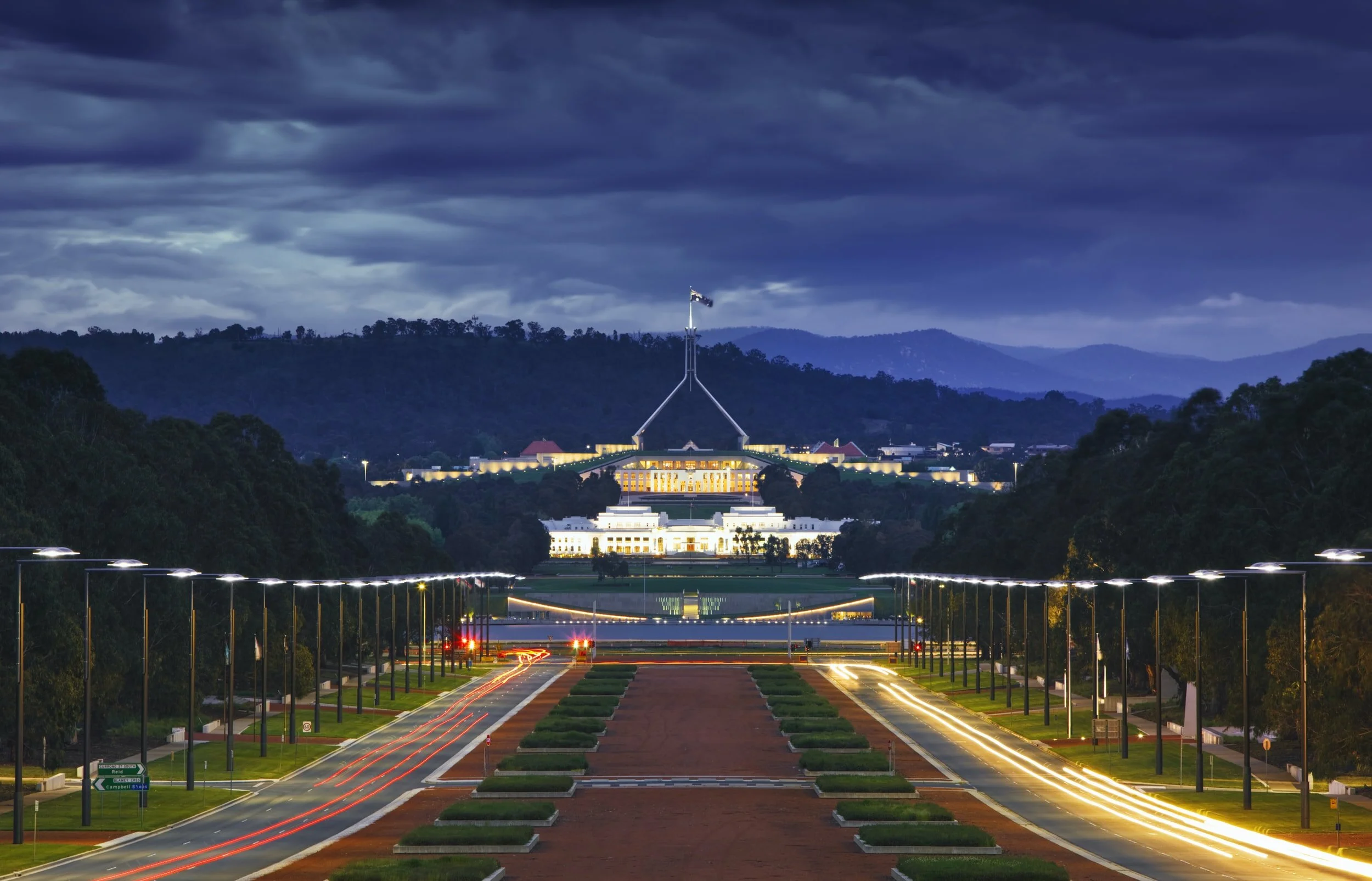n today’s blog post Robyn Oxley from the University of Western Sydney discusses ways to look beyond punishment as a way to address crime, with a specific focus on Aboriginal and/or Torres Strait Islander people. She argues that defunding police and abolishing prisons are not radical ideas when funds can then be re-directed towards areas that improve social issues such as housing, health, education and employment, which in turn reduce incarceration rates.
Read MoreEvents such as wild fires, floods, and droughts in all continents remind us of how fragile and vulnerable cities, communities, and wildlife are. In this blog Dr Juan Carlos Fallas Chinchilla examines the role engineering innovation has in relation to alleviating climate change; and debate the need for new technology alongside other policy instruments and how these can be complementary in tackling the climate emergency.
Read MoreYoung people with lived experience of self-harm or suicidal behaviour should be at the forefront of designing, evaluating and implementing suicide prevention research.
Controversial? Unfeasible? Risky?
You name it. As a suicide prevention researcher I have heard it all…by funders, ethics committees, Higher Education Health and Safety committees to name a few.
In this blog, I (Dr Maria Michail) share my experience of working in partnership with young people with lived experience of self-harm and suicidal behaviour to co-design of a guide titled “Visiting your General Practitioner: A guide for young people with lived experience of self-harm and suicidality”.
Read MoreIn this short but powerful piece, PhD scholar and ANZSOG researcher Patrick Lucas (@paustinlucas) discusses how nature is valued in very different ways by different social groups, and how current policy frameworks struggle to account for this diversity. He explores the emerging framework of “relational values” and its potential to lead to more equitable and just outcomes in biodiversity conservation.
Read MoreWithout representation, young people are struggling to get their voices heard in the decisions that affect them. Lowering the voting age to 16 is one integral way the government can reinvigorate the interest of young people in their democracy, argues Jordan Maloney, ANU Political Science and Sociology student and policy adviser
Read MoreWhy are victim-survivors of gender-based violence such powerful agents of change? What perils do they face? New research published in the journal Violence Against Women (@VAWJournal) presents findings from an in-depth study of domestic and family violence advocate Rosie Batty and the significant social and policy change she helped to drive in Australia. Lead author Lisa Wheildon (@wheeliebinit), from BehaviourWorks at the Monash Sustainable Development Institute, shares a summary of the findings from the study, co-authored with Professor Jacqui True (@JacquiTrue), Associate Professor Asher Flynn (@AsherFlynn), and Abby Wild.
Read MoreWe expect to be included in decisions about our care, yet one in three patients report not being included as much as they would like. Health services are working to include patients in decisions through Shared Decision Making (SDM) but lack robust research evidence to support implementation in hospitals. In today’s analysis Alexandra Waddell (@WADDELLAL) of Monash University (@BehaviourWorksAustralia) shares a summary of her recently-published paper, co-authored with Alyse Lennox (@alyselennox), Gerri Spassova, and Peter Bragge (@BraggePeter). It is the first publication to explore insights into barriers and facilitators to SDM faced by patients and clinicians, specifically in hospital environments. It also goes beyond past research to include other crucial stakeholders such as health service decision-makers and administrators, and government policymakers.
Read MoreTrust is often invoked as a key ingredient to establishing effective relationships between researchers, their research, and policymakers. In this post, Christopher Cvitanovic and Rebecca Shellock discuss their research on trust in practice. Drawing on their study into ICES (the International Council for the Exploration of the Seas), they outline lessons and processes in building and maintaining trust informed by the organisation’s extensive experience of connecting research to policy.
Read MoreYou may know the terms “nudge theory” and “co-design” very well, but you’ve probably thought less about how contradictory they are in practice. This is problematic because it is not uncommon for policy development to use both simultaneously. In this post, the authors outline why they are contradictory and provide a link for further reading.
Read MoreThe evidence has been well publicised: young people who have spent their formative years in public care are less likely than their peers to be in gainful employment, and more likely to become homeless, to become involved in crime or prostitution or to become long-term dependent on the state. A closer inspection of the data tends to reveal a much more nuanced picture: a small group of care leavers are ‘movers on’ who achieve educational, employment and wellbeing outcomes that are similar to those of their peers in the general population. A much larger group are survivors: they enter care significantly behind their peers in key areas of development and although, given the right support, they make progress, it takes time to narrow the gap, and their achievements, occurring relatively late in life, often go unrecognised. Only a relatively small group of care leavers fit the stereotype and struggle with very poor outcomes.
Nevertheless, we need to understand why, despite more evidence of success than is often acknowledged, the transition to adulthood from care can be problematic for too many young people who have been the responsibility of the state. In this blog, Harriet Ward and Mike Stein explore the transitions from care to adulthood through exploring historical narratives.
Read MoreLuke Michael (@luke_michael96) highlights findings from a new research report from Children and Young People with Disability Australia that suggest problems with NDIS implementation are many and varied, and are not likely to be fixed by the Government’s proposed major reform of Indpendent Assessments. He talks over the implications with the report’s lead author Professor Helen Dickinson.
Read MoreAlastair Stark, Nivek Thompson (@NivekKThompson) and Greg Marston argue that public deliberation can lead to better policy design by offering something more dynamic than a ‘snapshot’ of public opinion: it can show policymakers how citizens think and justify their decisions.
Read MoreOne of the headline figures in Tuesday’s federal budget was a A$1.1 billion dollar investment in women’s safety. This came as part of a special women’s budget statement, which pitched the budget as helping provide women with “respect, dignity, choice, equality of opportunity and justice”. It also comes amid a national crisis in domestic violence. On average, one woman is killed every week in Australia by a male current or former partner. So does the budget deliver on its promise to prioritise women’s safety and equality at home and at work? Does it do enough?
Read MoreFor decades addressing men’s violence against women has been “a women’s issue” and women’s responsibility. Women have established shelters and refuges to provide safety to women and children, women have taken to the streets to march for their safety, women have shared their lived experiences of violence and much more. We rarely hear from men or from children about their experiences of living with and witnessing men’s violence. This deeply personal piece seeks to start to change that.
Read MoreDespite being 30 years since the Royal Commission into Aboriginal deaths in custody, families continue to lose loved ones. More than 455 Indigenous Australians have lost their lives in police or prison custody since the Royal Commission reported and according to families, the loss of life is higher than what has been reported. In today’s post, Eddie Cubillo, a proud Larrakia, Wadjigan, Central Arrernte man from the Northern Territory and Senior Indigenous Fellow at Melbourne Law School, University of Melbourne, highlights successive government’s failure to act on the Royal Commission’s recommendations and calls for taking real and effective action into Aboriginal deaths in custody.
Read MoreIn today’s post, originally published in The Conversation, Professor Helen Dickinson (@drhdickinson) outlines concerns about the introduction of independent assessments into Australia’s National Disability Insurance Scheme, and explains why an independent evaluation of the proposed changes, designed in consultation with people with disability and their families, is needed before they are introduced.
Read MorePRIMARY CARE NETWORKS (PCNs) were introduced across England in July 2019, bringing together groups of general practices, along with community providers, to develop new services for patients. These networks respond to a need for better integration of health and social care services and issues of sustainability in primary care.
Read MoreThe Covid-19 pandemic is presenting governments, social work leaders, managers and frontline practitioners with unique challenges. In this blog, Harry Ferguson, Sarah Pink and Laura Kelly discuss their Economic and Social Research Council-funded research, which explores its impact on children, families and child protection social work.
Read More




















